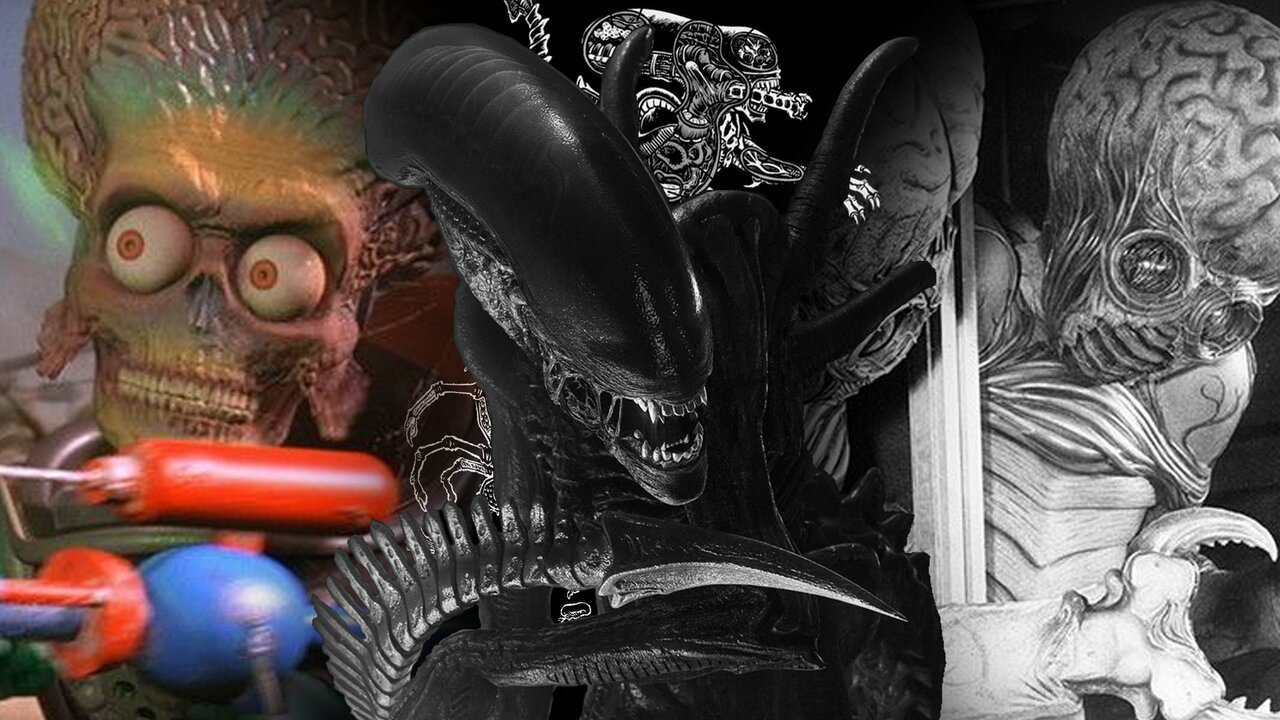Evolution Of The 'Alien' Franchise: Claustrophobic Horror To Covenant
Image Source: The United Federation of Charles
If you had to make a list of the most influential horror movies of all time, there’s no chance that Ridley Scott’s sci-fi horror masterpiece Alien would be high up on the list. Ever since the release of the first film in 1979, the titular alien (called a xenomorph) has been a cultural icon, reaching out beyond the horror community. The original film’s success both with audiences and critics (the film grossed 187 million on an 11-million-dollar budget) catapulted it to cultural relevance. Since then, the original film has become a long-running series that just saw the release of its latest entry, Alien: Covenant, in 2024. The twists and turns of the Alien franchise are fascinating, and well worth a look.
There are two types of people in this world: people who think that the original Alien movie is a haunted house movie set in space, and those who are wrong. I have similar feelings about whether or not The Terminator is a slasher movie with robots. The original film is incredibly contained, no pun intended. It follows a group of space truckers who are suddenly forced to try to survive against an ultimate killing machine, the likes of which they hadn’t comprehended before. The slow burn of the original film is perfect, and like the original Jaws, you barely ever see the monster. It got a whopping four minutes of screen time in a 116-minute film. Combine that with the dark, dank setting of a rundown cargo ship, and you have one of the most tense films of all time.
RELATED:
Now, with a movie that successful, it’s obvious things wouldn’t stop with one film, especially in horror. Thus, in 1986, James Cameron added his own spin on the Alien franchise with the sequel, Aliens. Foregoing the slow-burning horror of the original, Aliens is a straight-action film with horror elements. Instead of one alien, there are hundreds, and instead of space truckers, it’s hardened marines. The film was once again a smash success with audiences and critics, bringing in a $183 million box office on a $18 million dollar budget, with many considering it one of the greatest action movies of all time. It introduced new concepts, most notably the alien queen, who would become a mainstay of the series. It catapulted Sigourney Weaver into superstardom, and made Ellen Ripley one of the most iconic and beloved film characters of all time, regardless of gender or genre. The film was stuffed with iconic lines that people are still quoting today. Fans are split on which the first or the second is better, though it is like comparing apples to oranges. What people do agree on is that the ending is perfect, and we didn’t need another film.
Image Source: The Metaplex
But money.
In 1992, we went back to the Alien universe for Alien 3, this time directed by David Fincher. This is when the Alien series began showing cracks. The biggest problem for the film was that Aliens ended things pretty much perfectly, so they’d have to do something totally jarring and not at all pleasant to make it work. Killing everybody except Ripley, including the eight-year-old, seems like the trick. This had the effect of not only completely undoing the hopeful ending of the second movie, but it put the creators behind the eight ball when it came to people liking their movie. It didn’t get better from there, with the whole thing being a bleak, ugly movie that tried to go back to the roots of the original film, but a cast of mostly alien fodder didn’t make for a very engaging movie. It did introduce the idea of the chestburster taking DNA from its original host during gestation, which in this instance creates a dog alien, so take that for what you will. The film was a critical failure, but a modest financial success, though there was less profit than the previous two installments.
As with every director before him, Fincher thought that he was making the last Alien movie. But again, money, so in 1997 we were “graced” with Alien Resurrection. Set 200 years after the events of Alien 3, we now follow a Ripley cloned with the alien inside of her, which also mixes her DNA with the Xenomorph’s, giving us a Ripley with acid for blood. The movie was given mixed reviews upon its release, with critics citing its poor story, mediocre acting, and several baffling story choices, such as the human/alien hybrid that has been widely mocked since the film came out, though Weaver’s performance was once again praised. either way, it was clear that the magic of the first two movies wasn’t coming back. Nothing done had matched the acclaim of the original. As such, it would be a long time before we got a true Alien movie.
Until then, we finally got the crossover that fans had been clamoring for for years. Alien vs Predator previously had been a comic series before making its way onto the silver screen. Thus we were given two Alien vs Predator movies. The critical audience reaction was… less than stellar, with the first film receiving a 22% approval rating on Rotten Tomatoes, with the sequel, Alien vs Predator: Requiem gaining a 12% approval rating. The basic idea of the original film wasn’t horrible. The Predators used humans in ritual sacrifices to breed Xenomorphs to hunt as a coming-of-age ritual is a cool one. However, the overall lack of, you know, Alien vs Predator stuff really hurt the film. The films were ultimately seen as forgettable, and certainly not scary.
Image Source: JoBlo
Five years after AVPR, we were given Prometheus. For the first time since 1986, it seemed like we’d have an actual good Alien movie again. Ridley Scott was taking the helm, and who better to make another great one than the guy who gave us the creature in the first place? The results were… mixed, to say the least. While the visuals, effects and performances were praised, the story and characters are seen as controversial and illogical, and people also criticized it for answering questions we didn’t want answered. The film is known far more for its flaws than its strengths. It focused more on philosophical questions than actually being an entertaining, scary movie. In 2017 we got more of the same with Alien: Covenant, a film that, like its predecessor, did well at the box office and was praised for its performances and visuals, but is known more for its illogical plot and character beats. It was seen as highly forgettable otherwise.
The latest entry in the series is 2024’s Alien: Romulus, a film that decided to ditch the freshman philosophy of its predecessors and just try to be a fun, scary Alien movie again, to mixed results. It was certainly scarier than anything since possibly Aliens, but it was criticized for relying far too heavily on callbacks to the first two films. Given its greater focus on slow-burn horror with a dash of action mixed in, it could lead to more films trying to go back to the franchise’s roots.
The Alien franchise has a long, storied history that has certainly not been finished. The series has yet to have a box office failure, even if it has had critical ones. The Xenomorph is one of the most culturally iconic creatures ever, and its legacy has endured ever since the first film back in 1979. From slow-burn horror to pulse-pounding action to philosophy on the nature of creation, the Alien franchise has found itself in many genres. Given that it’s roughly five to six years in between every installment, it will be interesting to see what comes next.
READ NEXT:
















